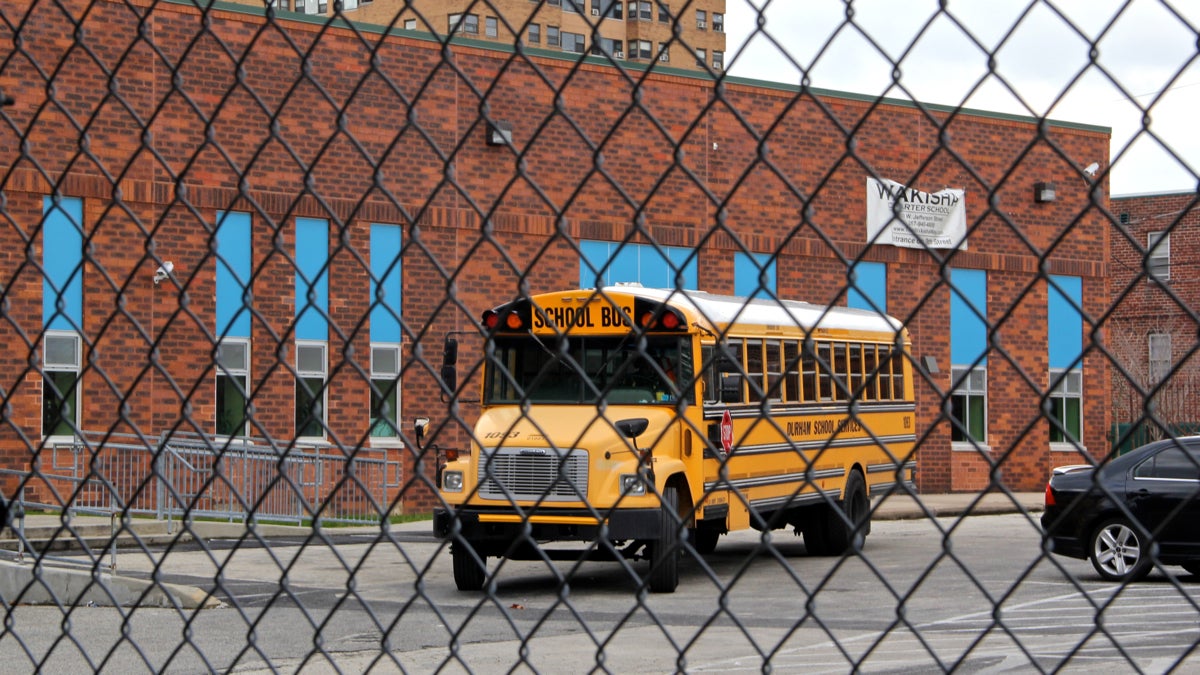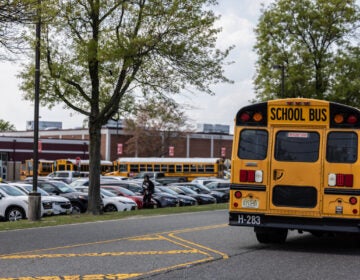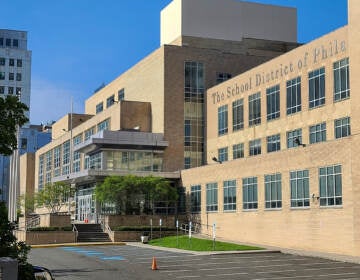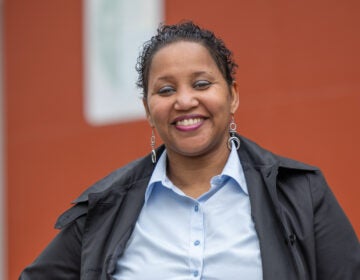Philly Wakisha Charter school shutting for good earlier than planned

Wakisha Charter School at 9th and Jefferson streets will close at the end of the week. (Emma Lee/WHYY)
North Philadelphia’s Wakisha charter school is closing its doors this Friday, only the second charter school in Philadelphia history to do so in the middle of a school year. Wakisha was supposed to close on December 23rd, but last week the school’s administration stopped classes and moved up the last day to December 19th.
In a letter from school administrators first reported by the Philadelphia Inquirer‘s Martha Woodall, the school citied dwindling teacher and student numbers as the reason for closing their doors even sooner than initially announced. The letter maintained there were only “three administrators, and 10 classroom teachers and support staff” as of last week. According to the Philadelphia School District, around 180 students are still enrolled at Wakisha in the District’s enrollment software, but classroom teachers report that only around 100 students are showing up.
Mid-year closing “largely unprecedented”
This fall, Walter D. Palmer charter in Tacony shed over 500 students – including its entire high school – two months into the school year. But Wakisha remains one of only a few charters to completely close during the school year. In 2013, cyber charter Solomon Charter School closed its brick-and-mortar operation during instruction. but because cyber charters are regulated at the state level, the Philadelphia School District doesn’t count Solomon’s closing as a Philadelphia charter school closing.
While the District was not a part of the decision to close Wakisha, the district’s charter office has been assisting students and parents to make the mid-year switch to a new school. Peng Chao, the district’s charter office operations coordinator overseeing the transition said the mid-year closing is “largely unprecedented.” Chao said the office will continue to work through the holiday to help students find new schools, but that “mid-year closing strains the entire transition process.”
Roughly 100 students have transferred to other schools to date according to Lauren Thum, another operations coordinator with the charter school office. Thum says the students have transferred to a mix of charter and traditional public schools throughout the city. Most will end up in district schools because many charters have already reached their enrollment caps, said Thum. Some may move to Catholic schools if they can afford the tuition.
Wakisha Charter opened in September 2000 and promised in its mission statement an “academically rigorous, all-inclusive, standards-driven, African centered curriculum.” According to Wakisha’s most recent Pennsylvania School Performance Profile, the student body was more than 99 percent black or African-American, 80 percent economically disadvantaged and about a quarter of the students qualified for special education.
The costs of a mid-year closure
Even though classes officially have ended, seventh grade civics and cultural arts teacher Steven Wilson is still showing up to support Wakisha students without a new school. And, while some of the teachers and adminstrators have already transitioned to new jobs, Wilson is still looking. “I will never teach again. Ever. Because this was the most horrible experience,” said Wilson of the abrupt school closing.
Wilson said the charter administration owes him more than $3,000 in back and vacation pay and others are in the same boat. “This is the true Scrooge, where you get a lump of coal for christmas,” he said. So, Wilson said he’s applied for rental assistance. “I shouldn’t have to get evicted for money I’ve already earned.”
He shared a letter from Wakisha’s Charter administration which advises teachers who want to recoup summer rollover and sick pay to consult with the “attorney assigned to the liquidation of the school.” The school district, while it helps the students transition has no role in ensuring teachers receive pay.
Data from the school’s annual report to the Department of Education show expenditures outpacing revenue since at least 2009.
According to Fernando Gallard, Philadelphia School District spoksman, the district had been cutting payments to Wakisha to cover the cost of unpaid contributions to the school’s monthly pension bill. Gallard could not say how the school district would deal with Wakisha’s December pension bill.
Some have pointed to under enrollment and poor academic performance as the cause the school’s financial decline. Wakisha was approved to accept up to 400 students, but managed to enroll only about 250 for the 2014-2015 school year. Wilson, the civics teacher, said the school has been under-enrolled by at least 80 students for the past three years. He pointed to issues with discipline and a failure by the administration to recruit sixth graders for the under-enrollment.
CEO Crystal Nelson and school officials declined to comment on the early closure.
WHYY is your source for fact-based, in-depth journalism and information. As a nonprofit organization, we rely on financial support from readers like you. Please give today.




